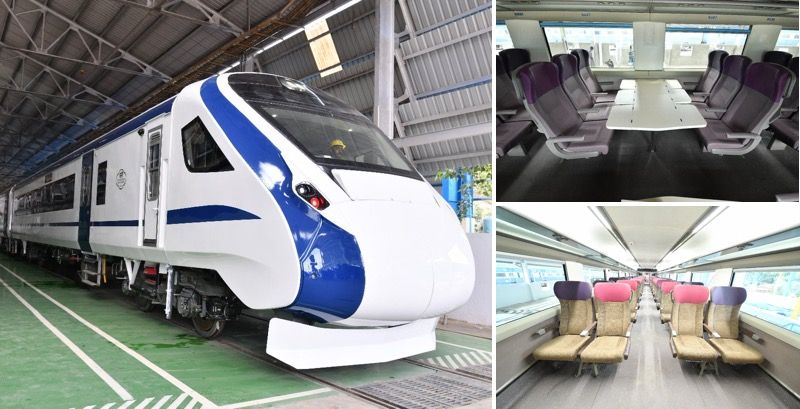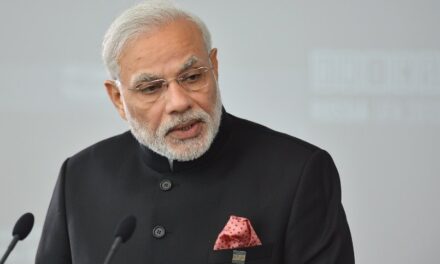Video: Railways’ most high-tech train, the engine-less ‘Train 18’, to start trial runs next week


With 80% Indian origin components, Train 18 costs Rs 100 crore – less than half the price of importing such rake from abroad
The country’s first engine-less train, codenamed ‘Train 18’ and a successor to the 30-year-old Shatabdi Express, is set to hit the tracks for trials on October 29.
Driven by a self-propulsion module sans a separate locomotive, the train, capable of running at a speed of up to 160 kmph, comes with technical features for enhanced quick acceleration.
“It will be unveiled on October 29, then it will do three to four days of trial outside the factory and then will be handed over to Research Design and Standards Organisation (RDSO) for further trials,” ICF general manager Sudhanshu Mani said.
The self-propelled train would have two executive compartments in the middle with 52 seats each, whereas trailer coaches would have 78 seats each. The full AC train is designed in such a way that passengers can have a look at the driver’s cabin
Train 18 is touted as a replacement for Shatabdi, which was introduced in 1988 and is presently running on over 20 routes connecting metros with other important cities.
What you need to know:
* Train 18, the new age flagship with self-propulsion (engine-less) will roll out the production shops of Integral Coach Factory (ICF) next week.
* The 16 coach semi-high speed train will consist of 16 coaches and is designed for Maximum Operating speed of 160 kmph. It will reduce travel time by at least 15% compared to existing Shatabdi Express.
* The train has been conceived, designed and is being developed in a record time of about 18 months, as against the industry demand of about 3 to 4 years, for designing and developing of such type of new design coaches.
* The train boasts of swanky interiors and a host of modern amenities like diffused lighting, automatic doors & footsteps, CCTV cameras, GPS-based Passenger Information System among others.
* The Train 18 Trainset is getting ready at an approximate cost of Rs 100 crores per rake – about half the price of importing such a rake from abroad.
* It uses 80% Indian origin components in alignment with Prime Minister’s call for ‘Make in India’.













